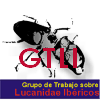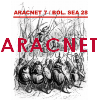McM
|
|
|
|
|
|
|
¡Recibe un e-mail cuando esta página cambie! |
|
powered
by |
Manifiesto científico por Los Monegros
La Biodiversidad planetaria, expresada en cualquiera de sus niveles, de organismos a ecosistemas, constituye el único mecanismo que garantiza, en su conjunto, el correcto funcionamiento del planeta (regulación de gases y clima, ciclo del agua, formación de suelos, reciclado de nutrientes, tratamiento de residuos, control biológico, etc), al tiempo que deviene la única fuente de recursos primarios conocida (materias primas, alimentos, recursos genéticos, etc). La Conservación de especies y ecosistemas se ha convertido, al rozar el nuevo milenio, en algo más que una simple actitud, ética y/o estética, de respeto y admiración frente a la Naturaleza y la Vida, convirtiéndose en la única respuesta sensata y coherente a la situación de riesgo a que se enfrenta la especie humana, cuya supervivencia a medio plazo puede verse seriamente comprometida. La Conservación de los Recursos Naturales es, pues, una demanda social de primer orden y es deber de los Poderes Públicos, en sus diferentes ámbitos y cualesquiera que sean sus ideologías o tendencias políticas, dar cumplida respuesta a la misma. Respuesta que no puede ser única o aislada, pero que en todo caso exige la urgente adopción de medidas de Protección jurídica de aquellos bienes naturales cuya singularidad sea excepcional o cuyo estado sea el de riesgo de extinción o desaparición. La responsabilidad en esta materia es enorme, pues implica la selección de aquellos bienes naturales que serán protegidos e, indirectamente, la de aquellos que quedarán a su suerte, sin que exista en la mayoría de los casos la posibilidad de rectificar errores o corregir decisiones equivocadas. Los Poderes Públicos deben designar en el ámbito jurídico qué organismos y hábitats sobrevivirán y cuáles son sacrificables, dependiendo de tales decisiones, en gran medida, el nivel de bienestar de las generaciones futuras, cuando no la propia supervivencia. Es evidente que la elección de los bienes naturales a proteger constituye -o debe constituir- el resultado de un análisis profundo, de carácter marcadamente técnico, basado en información objetiva, fiable y veraz. En absoluto puede ser el fruto de decisiones discrecionales, oportunistas o adoptadas en base a criterios propagandísticos, estéticos, económicos o simplemente bienintencionados. Con demasiada frecuencia, los Poderes Públicos, han asumido junto al papel que les es propio (la definición del marco jurídico de protección, la dotación de recursos económicos y la gestión y custodia del patrimonio protegido), la responsabilidad de seleccionar los bienes protegidos en un ejercicio de discrecionalidad, simple intuición, propaganda o mediación de compromiso entre intereses contrapuestos (y habitualmente privados). Sin embargo, el único criterio aceptable para la selección de bienes naturales a proteger es el científico. Sólo la Ciencia puede brindar razones objetivas y contrastadas que valoren el estado y previsible evolución de nuestros recursos. Sólo la Ciencia está capacitada, y por tanto legitimada, para definir qué especie, hábitat o ecosistema debe ser objeto de protección. Los Monegros son un ecosistema singular, maduro, único en Europa, cuya riqueza biológica ha demostrado ser excepcionalmente importante en términos cuantitativos y cualitativos. La biocenosis documentada de Los Monegros sobrepasa las 5.400 especies biológicas, cifra superior a la conocida de cualquier otro hábitat nacional o europeo, presentando el mayor índice de novedades taxonómicas (nuevas especies para la ciencia) de toda Europa en lo que va de siglo, con un alto grado de endemismos y citas únicas para el continente y con numerosos ejemplos de distribuciones biogeográficas y adaptaciones ecológicas novedosas de enorme interés científico. No existe, con datos objetivos y contrastados, ninguna otra zona o espacio físico en nuestro territorio nacional, y tal vez en toda Europa, que pueda siquiera compararse a las singularidades, novedades, rareza y riqueza biológicas que hoy están documentadas científicamente de Los Monegros. Sin embargo, contra toda lógica en materia de protección medioambiental y en colisión frontal con los Convenios Internacionales firmados por nuestro Estado, Leyes de ámbito nacional y autonómico sobre Espacios Naturales protegidos y con absoluto desprecio u olvido de los principios esenciales que guían la política conservacionista europea, los Monegros no han sido incluidos por los Poderes Públicos Aragoneses en ninguna de las figuras de protección previstas en la legislación vigente. Por tanto: La CIENCIA, a través de los investigadores internacionales que colaboran en el presente documento y los que lo firman, MANIFIESTA sobre la base de criterios objetivos e informaciones contrastadas científicamente, que Los Monegros es un hábitat que requiere por su singularidad, importancia y situación de peligro, su inmediata inclusión en alguna de las figuras de protección jurídica contempladas en la legislación vigente que permita salvaguardar, al menos en parte, su integridad ecológica. POR ELLO, EXIGEN DE LOS PODERES PÚBLICOS ARAGONESES, ESPAÑOLES Y EUROPEOS A TRAVÉS DE ESTE MANIFIESTO LA INMEDIATA ADOPCIÓN DE MEDIDAS ESPECIALES DE PROTECCIÓN JURÍDICA DE LA ZONA. Como argumentos que justifican esta demanda, adjuntan en forma necesariamente resumida y sintética, la información científica acumulada hasta la fecha que demuestra, más allá de toda duda razonable, el incalculable valor biológico de Los Monegros y, en consecuencia, el irreparable perjuicio que ocasionaría la actual situación de desprotección que está sufriendo este territorio único en Europa.
Scientific Manifesto for Los Monegros• The planet’s biodiversity, expressed at any of its levels, from organisms to ecosystems, is the only mechanism that can guarantee the correct functioning of the planet as a whole (regulation of gases and the climate, water cycle, generation of soils, recycling of nutrients, processing of waste, biological control etc), and at the same time constitutes the only known source of primary resources (raw materials, food, genetic resources etc). • The conservation of species and ecosystems is, on the brink of the new millennium, something more than just an attitude, ethical and/or esthetic, of admiration for Nature and Life, and has become the only sensible and coherent response to the high risk situation facing humankind, whose medium term survival may be in serious jeopardy. • The Conservation of Natural Resources is, therefore, a social demand of the highest order, and it is the duty of the Authorities, in their different spheres of action and whatever their ideology or political creed, to fully respond to it. Their response cannot be limited or isolated, and must include the urgent adoption of measures of legal Protection for those natural resources which are unique or in danger of extinction or disappearance. • Their responsibility in this area is enormous, as it involves the selection of which natural resources are going to be protected and, indirectly, which ones are going to be left abandoned to their fate, and in most cases there is no chance to amend mistakes or correct wrong decisions. The Authorities must decide, by law, which organisms and habitats will survive and which are expendable, and on such decisions depends, to a large extent, the wellbeing of future generations, even their survival. • It is obvious that the decision whether to protect a natural resource must be the result of a deep analysis, of a markedly technical nature, based on reliable, solid, objective information. There is no way that it can come from discretionary or opportunistic decisions, be based on propaganda, esthetic or economic criteria or obey to mere good intentions. • Only too often, the Authorities, apart from their typical functions (defining the legal frame of protection, allocating economic resources and administering and giving custody to the protected areas), take on the responsibility of selecting which resources are to be protected, and do it on the basis of discretionary decisions, simple intuition, as propaganda or in the course of mediation between clashing interests (usually of a private kind). • However, the only acceptable criterion to decide which natural resources should be protected is of a scientific nature. Only Science can give objective and balanced arguments that allow us to assess the situation and foreseeable evolution of our resources. Only Science has the ability, and therefore the legitimacy, to define which species, habitats or ecosystems must be protected. • Los Monegros is a singular, mature ecosystem, unique in the European context, whose biological diversity has proved to be exceptionally important both from a quantitative and a qualitative point of view. • The biocenose of the Monegros, as has been documented so far, includes some 5400 biological species, more than in any other known Spanish or European habitat, and presents the highest level of taxonomic novelties (species new to science) in the whole of Europe this century, with a high degree both of endemicity and of only European records, and with a large number of biogeographic ranges and new ecological adaptations of an enormous scientific interest. • If one takes into account objective, balanced data, there is no other area in the country, and perhaps in the whole of Europe, that comes even near to the level of singularity, novelty, rarity and biodiversity that has so far been scientifically documented in Los Monegros. • However, against all expectations in the context of environmental protection, in a head-on clash with the International Agreements signed by the central government and the State and Regional Laws on Protected Areas, and an absolute disregard for the basic principles that guide the European conservation policy, Los Monegros has not been included by the Aragonese Authorities in any of the categories of protection defined by current legislation. • Therefore: SCIENCE, represented by the researchers who have studied Los Monegros or its biocenose, WISHES TO EXPRESS, on the grounds of objective criteria and scientifically contrasted information, that Los Monegros is a habitat that requires, owing to its singularity, importance and endangerment, its immediate inclusion in one of the categories of legally protected areas defined by current legislation, in order to preserve, at least partially, its ecological integrity. • THEREFORE, WE DEMAND OF THE ARAGONESE, SPANISH AND EUROPEAN AUTHORITIES, WITH THIS MANIFESTO, THE IMMEDIATE ADOPTION OF SPECIAL MEASURES OF LEGAL PROTECTION OF THE AREA. • As arguments to justify this demand, we enclose, in the form of a summary, the scientific information that has been gathered until this moment, which proves, beyond all reasonable doubt, the incalculable biological importance of Los Monegros and, consequently, the irreparable damage that can come out of the present situation of lack of protection for an area which is unique in the European context.
|
|
|
_______
Página creada el 23 de julio de 1999
Última actualización: 13/10/01






